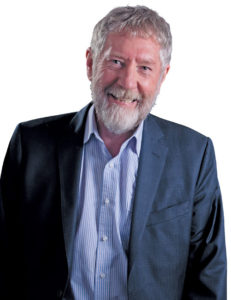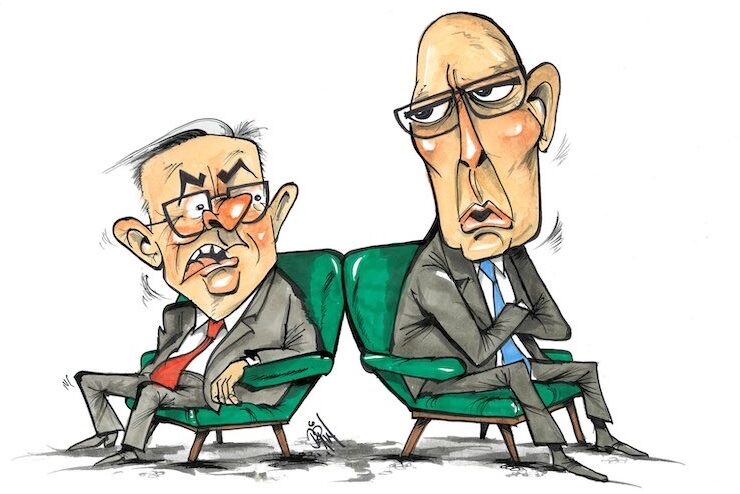“The expected outrage has not occurred. Nor has there been hugely negative media regarding the pill testing and safe-injecting facility,” writes political columnist MICHAEL MOORE.
“A VERY courageous decision, Prime Minister” has come into the lexicon from “Yes, Minister” as Sir Humphrey discourages Jim Hacker from proceeding with a carbon tax.

The implication of significant adverse publicity resulting in the loss of an election is enough for the Prime Minister to back down from a decision that Sir Humphrey does not approve.
Mitigating against adverse reactions to “courageous” political decisions is an art form that governments practice when dealing with controversial issues. The ACT government is adept at such ploys across a range of issues. The introduction of harm-minimisation policies provides an example of the political tools used to moderate community concerns.
Michael Pettersson has built a reputation as a young progressive who gets things done. He has found ways around the political wilderness as a backbench MLA in the Labor Party. By taking on drug law reform he has become quite controversial and, as such, has been able to build a significant public profile.
It is very useful for the government to test community sentiment by having a back-bencher putting a toe in the water on such controversial issues.
It is even better when the exercise is not cynical. Mr Pettersson is genuinely committed to drug law reform.
For nearly 30 years Canberrans have been living with cannabis decriminalisation. Pettersson has taken the next step by successfully moving to have the use of small amounts of cannabis made legal. Additionally, in February he tabled the Drugs of Dependence (Personal Use) Amendment Bill 2021 which seeks to remove criminal sanctions for all current illicit drugs used for personal use.
In the meantime, the government has had a report from the Burnet Institute on the establishment of a Supervised Injecting Facility in Canberra and has received widespread publicity about the recommendations to proceed.

The Health Minister, Rachel Stephen-Smith, toured a similar facility in Melbourne last month while attending a health ministers’ meeting and has now decided to proceed as part of her overall “ACT Harm Minimisation Strategy” for dealing with drugs.
While the attention is focused on Michael Pettersson and the decriminalisation of all drugs, the government has moved forward to approve a supervised injecting facility, subject to dealing with the logistical challenges.
Rachel Stephen-Smith has also used the opportunity to take any community flack at the same time by announcing the establishment of a static pill-testing facility.
The Assembly Select Committee examining the Pettersson Bill is chaired by Liberal Peter Cain with Labor Marisa Paterson and the Greens Jonathan Davis as the other members. The committee is taking submissions until June 11 and, at time of writing, had received just four submissions, although it is not unusual for submissions to come into a committee close to the deadline.
The expected outrage has not occurred. Nor has there been hugely negative media regarding the pill testing and safe-injecting facility. The constant efforts of Mr Pettersson have taken pressure off the government – which is now seen to be a little more moderate than their backbencher.
The submission by the Australian Lawyers Alliance (ALA) to the Select Committee provides an insight as to why these moves are not as controversial as they would have been a couple of decades ago.
The ALA advocates for “a shift in drug policies across Australia from an emphasis on law enforcement, to a focus on the broader health and social issues associated with the harmful use of drugs”.
The ALA has released its own report “Doing More Harm than Good”. The argument put in its submission is “criminalisation of drug use has not worked. It has not stopped people from continuing to use drugs. It has not stopped people from overdosing. It has often exacerbated people’s disadvantage, resulting in further financial distress, mental illness, and difficulties finding and keeping housing”.
The toe in the water has been at least partially responsible for ensuring a sensible and thoughtful discussion on how to best handle drug policy. It has allowed the opportunity for people to express their views.
However, more importantly, it has allowed the government to assess the mood of the community.
“Yes, Minister” uses humour to expose the tactics employed in politics and in government. It should not be surprising that the tactics are alive and well in the ACT.
Who can be trusted?
In a world of spin and confusion, there’s never been a more important time to support independent journalism in Canberra.
If you trust our work online and want to enforce the power of independent voices, I invite you to make a small contribution.
Every dollar of support is invested back into our journalism to help keep citynews.com.au strong and free.
Thank you,
Ian Meikle, editor








Leave a Reply